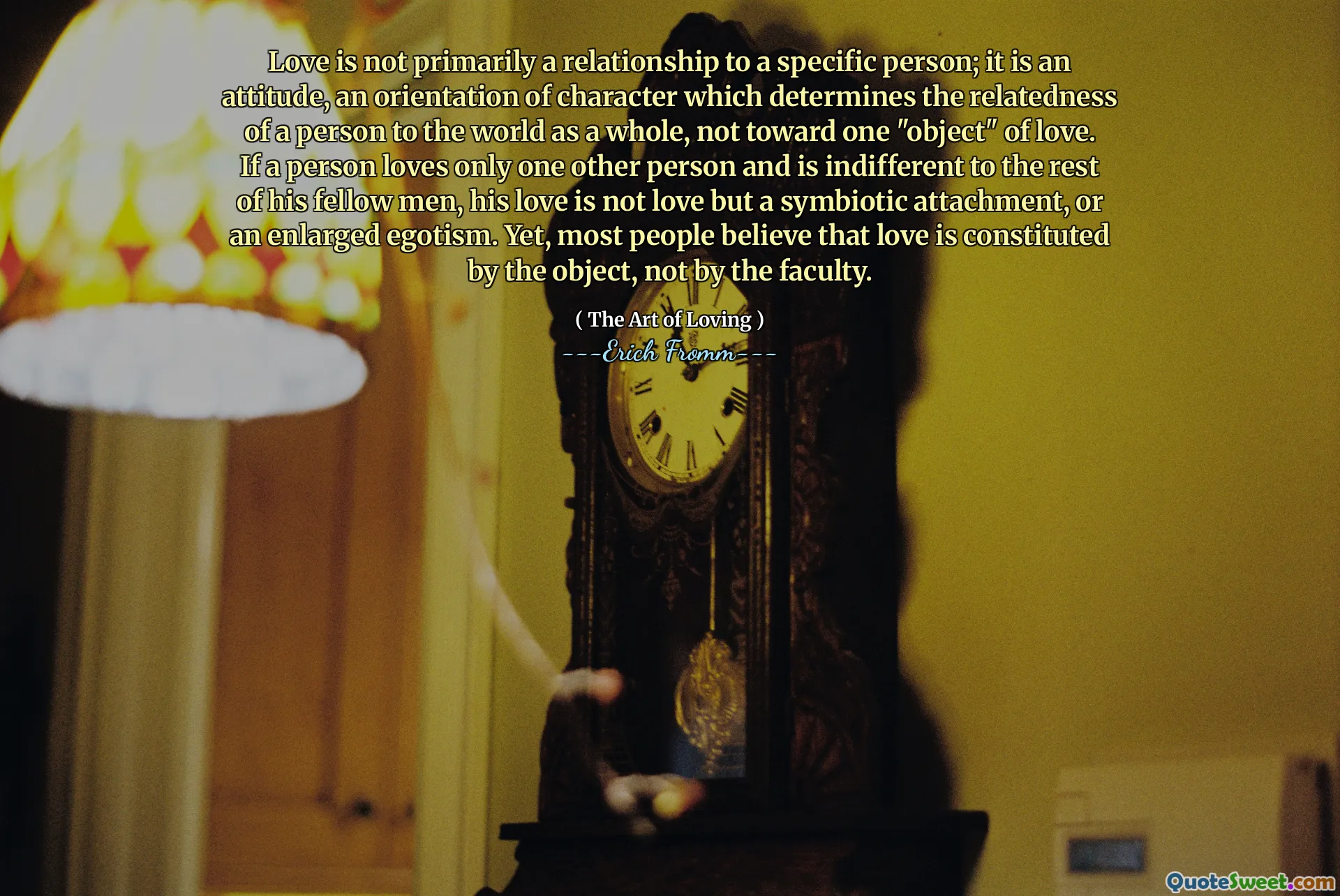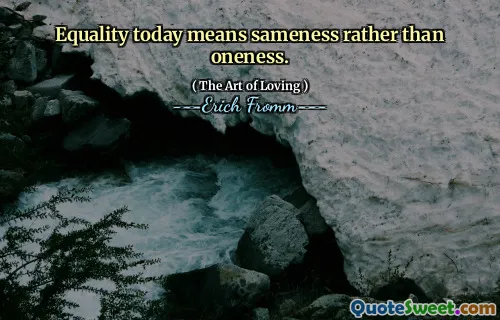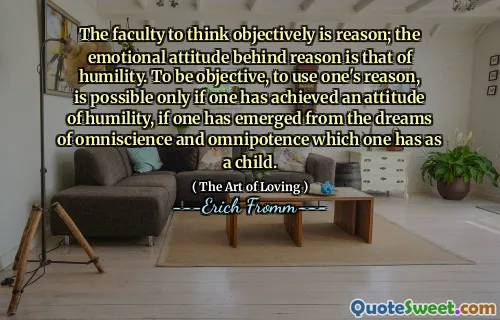
Love is not primarily a relationship to a specific person; it is an attitude, an orientation of character which determines the relatedness of a person to the world as a whole, not toward one "object" of love. If a person loves only one other person and is indifferent to the rest of his fellow men, his love is not love but a symbiotic attachment, or an enlarged egotism. Yet, most people believe that love is constituted by the object, not by the faculty.
This quote from Erich Fromm's 'The Art of Loving' challenges conventional perceptions of love as merely a connection to a specific individual. It emphasizes that true love is an attitude—a way of being and relating to the world—rather than simply an emotion directed at one person. When love is viewed as a mere attachment to an object, it reduces the depth of human connection and can foster egocentric behaviors, where one’s love is confined and self-serving, rather than outwardly expansive and compassionate. Fromm suggests that genuine love involves an active, responsible, and caring attitude that extends beyond a single relationship, encompassing a broader concern for humanity and life itself. Such love reflects a healthy character and an attitude of openness, understanding, and empathy, which foster meaningful connections in multiple facets of life. The idea encourages us to see love as a universal principle rooted in our inner disposition, shaping how we engage with all beings. Recognizing love as a faculty that can be cultivated rather than an accidental feeling opens pathways to emotional maturity and a more profound engagement with the world. This perspective can transform how individuals approach relationships, emphasizing personal development as fundamental to loving authentically and fully. Ultimately, Fromm’s insight invites a shift from possessive and object-based love to a more integrated, compassionate, and expansive way of relating to others and the world around us.








